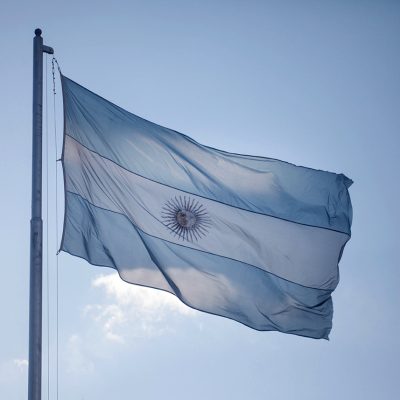Our partner, Fundación GEP, has filed a patent opposition against Gilead’s patent application on remdesivir before the Argentinean Patent Office. The civil society organization has requested that the National Institute of Intellectual Property (INPI) rejects the patent application to prevent the company acquiring a monopoly on a drug which could be a breakthrough in the treatment of COVID-19.
 Yesterday (4 June 2020), Fundación GEP filed a patent opposition against a patent application for remdesivir submitted by Gilead, the US multinational pharmaceutical company. Remdesivir is one of the drugs currently being studied in clinical trials for effectiveness in the treatment of COVID-19.
Yesterday (4 June 2020), Fundación GEP filed a patent opposition against a patent application for remdesivir submitted by Gilead, the US multinational pharmaceutical company. Remdesivir is one of the drugs currently being studied in clinical trials for effectiveness in the treatment of COVID-19.
The corporation has filed numerous patent applications on remdesivir around the world, in February and April this year. As the pandemic grew, Gilead sought to protect its potential profits and block competition, which would be essential in order to upscale production and treat everyone in need if the drug is proven to be effective.
In Argentina, Gilead has a history of presenting patent applications that do not meet the country’s patent examination criteria. Fundación GEP believes this latest application is an attempt to gain exclusive rights to produce and commercialize remdesivir at unreasonable prices.
Gilead has a history of filing patents that do not meet Argentina’s criteria.
“Patent oppositions are legal instruments that allow a close collaboration in the analysis of patent applications submitted before INPI, the office in charge of rejecting or granting patent rights by verifying the legality of applications. Prior to the granting of the patent, the Argentinean State has to analyze applications, as well as the oppositions or calls to attention filed by third parties, such as the ones submitted by Fundación GEP,” says Lorena Di Giano, Executive Director of Fundación GEP.
By patenting their products, it paves the way for a company to charge excessively high prices. In the case of sofosbuvir, a drug that cures Hepatitis C, Gilead set a price of $84,000 (USD) for one person’s treatment in countries where it had successfully obtained patents. According to the University of Liverpool, this drug could be produced, with profit, for $100.
“It is clear that Gilead is trying to install the same abusive commercial strategy for remdesivir,” says Di Giano. She’s clear that this is unacceptable with any drug at any time, but in the context of a pandemic “we must prevent such behaviour in Argentina”.
An abusive commercial strategy – Di Giano.
Gilead’s intended price, or prices, for remdesivir is not yet known, it pretty much depends on the monopolies Gilead can obtain in different countries. The University of Liverpool recently conducted a study that proved that remdesivir, as well as other drugs under trial for the treatment of COVID-19, could be produced at around $1 a day. This is key data when it comes to putting Gilead’s speculative prices under analysis.
Gilead has already shown its global commercial strategy regarding this drug. The company is willing to transfer technology only to certain producers in India and Pakistan, and has held the market in middle-income countries, including all the countries in South America, in order to profit from intellectual property rights granted by its patents.
Gilead is one of the largest multinational pharmaceutical companies and it is owned by a number of investment funds. BlackRock, one of Argentina’s biggest creditors for providing external debt, is among them. With its headquarters in the United States, the company has a monopoly for the production and marketing of remdesivir in 70 countries around the world, even when this drug has not yet been granted the approval to be commercialized.
“Pharmaceutical companies are no longer laboratories where scientists are seeking a health solution: behind them there are big investment funds that speculate with our health. They are not interested in saving lives, but in developing their products only for those people and states that can buy them at the impossible prices they have imposed under monopolies. We have recently witnessed how this pharmaceutical corporation blocks access to medicine that saves lives,” said José María Di Bello, President of Fundación GEP.
Pharmaceutical companies are no longer laboratories where scientists are seeking a health solution: behind them there are big investment funds that speculate with our health – Di Bello.
INPI must act urgently to resolve all the patent requests on remdesivir, as well as any other drug or vaccine that may be used for the diagnostics, treatment or prevention of COVID-19.
In Argentina the legal instruments to guarantee access to essential drugs or vaccines for COVID-19 exist – it is just a question of having the right political will.




